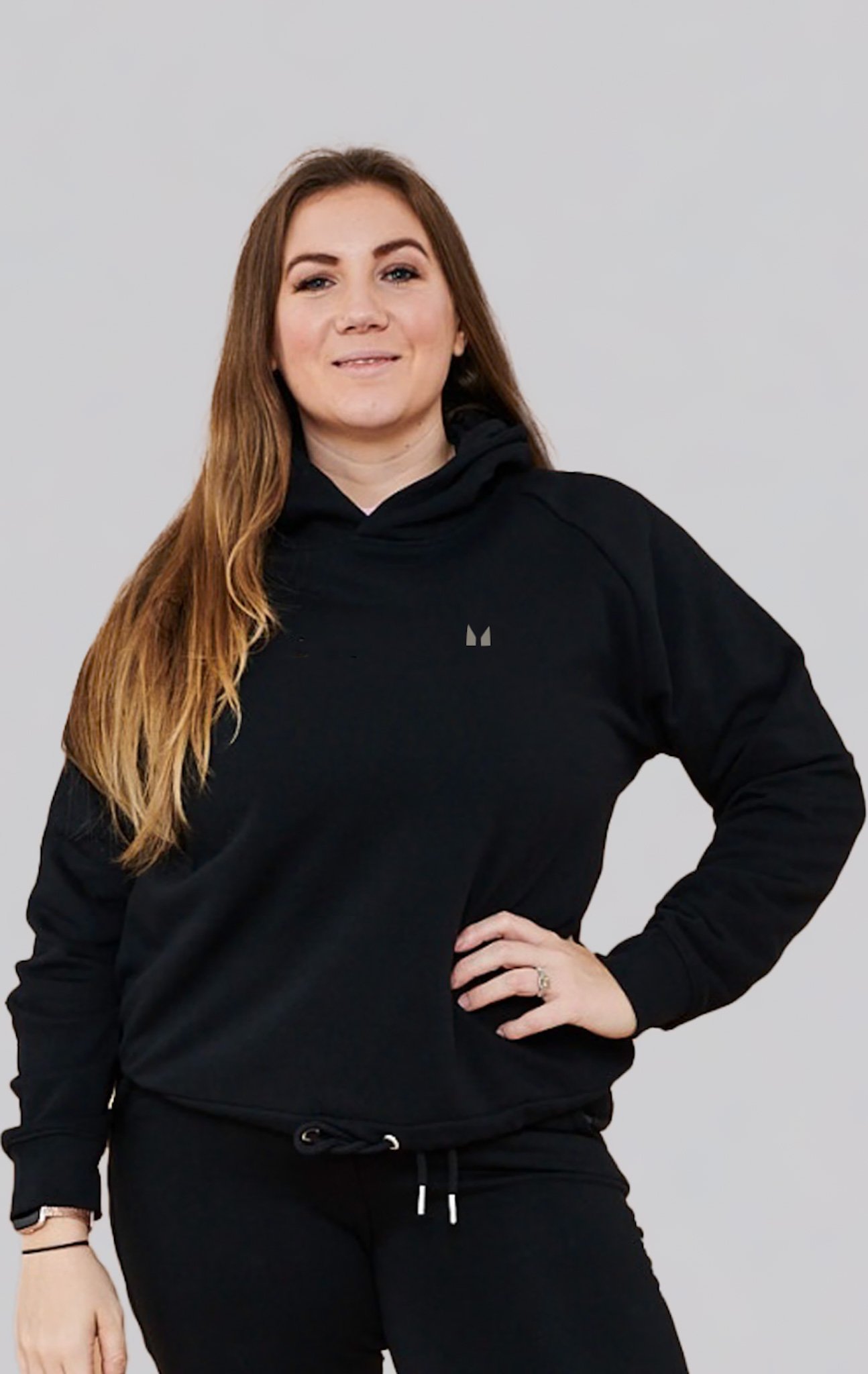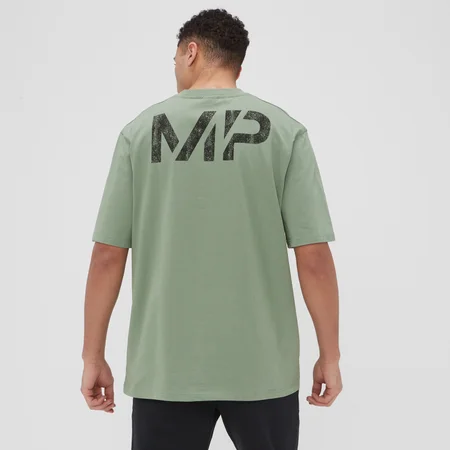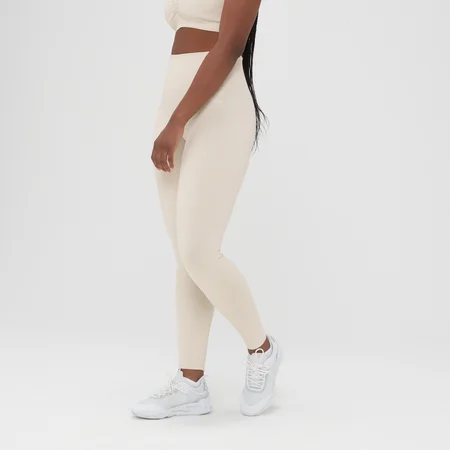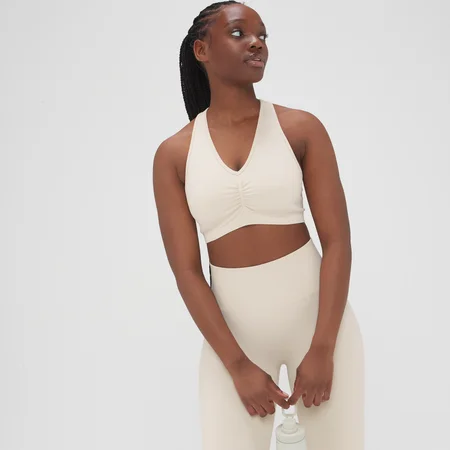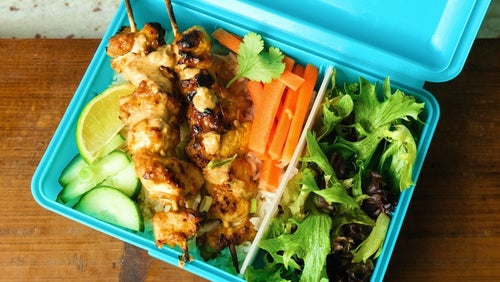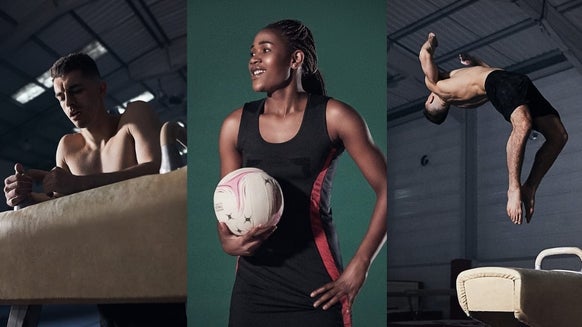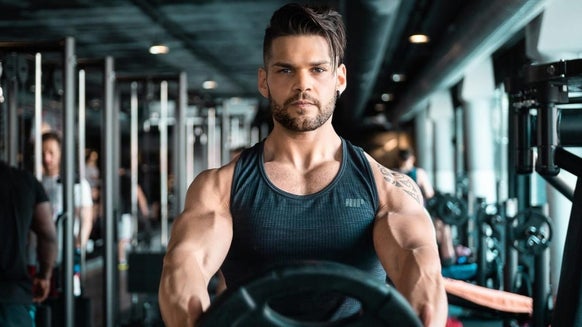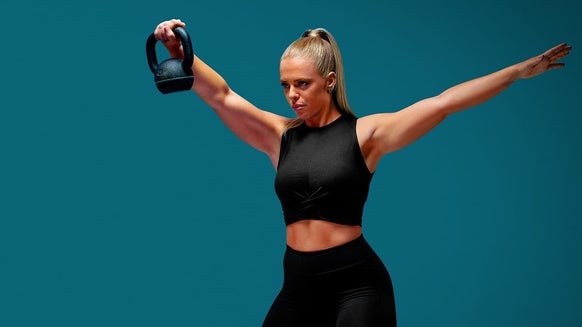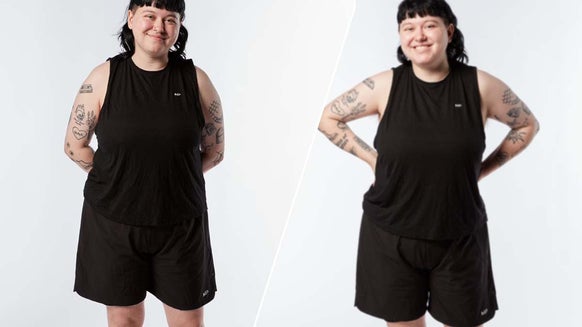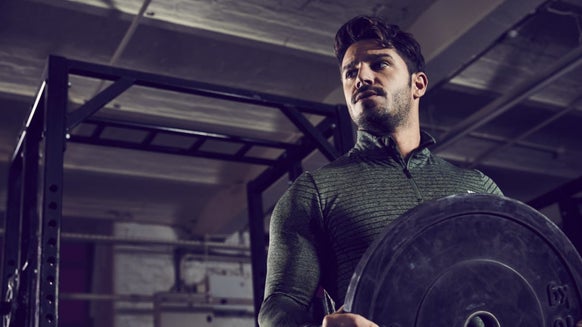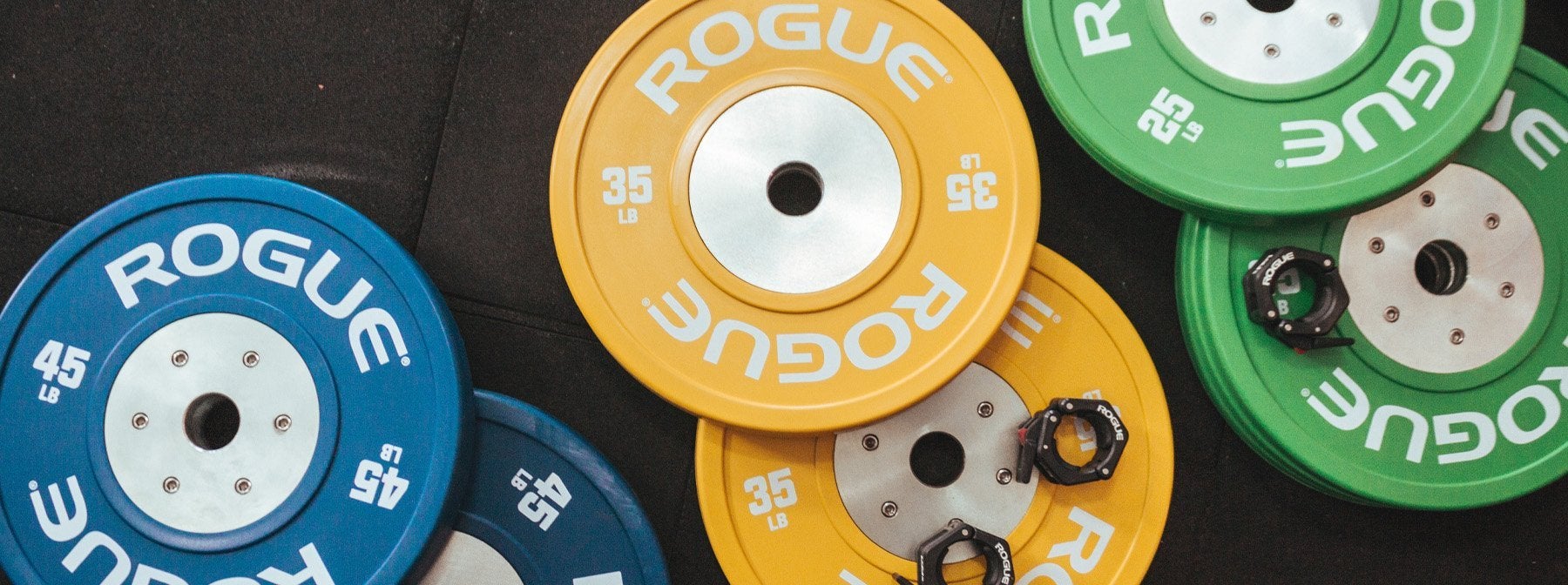
It may seem scary heading into the gym for the first time, but remember everyone started out as a beginner at some point.
From workout clothes to setting goals, here’s all you need to know to feel confident and get started in the gym.
Workout Clothes
Looking and feeling confident is one of the best ways to set yourself up for success, so make sure you have a wardrobe full of workout-specific gear that you feel confident and comfortable wearing.
High-impact sports bras or trainers are perfect for high-intensity workouts, while core stability leggings or shorts are better for strength sessions.
Check out our latest activewear ranges here.
Workout Equipment
You’ll also want to make sure you’ve got all the equipment you need before your gym session. Don’t forget to pack a water bottle, a towel, post-workout kit, and snacks — of course!
You could also bring your own equipment — like resistance bands, a foam roller, or a skipping rope — to keep your workouts varied and fun.
Food and Supplements for the Gym
Exercise can be intense and put stress on your muscles and joints, supplements can help give you an extra edge, fuelling your workouts and supporting your recovery.
There are loads of supplements to choose from, including protein powder, creatine, pre-workout, multivitamins, BCAAs, and glutamine.
Make clear and reasonable goals
Setting goals is a great way to start your fitness journey, but it’s important to find the right balance between challenging and realistic. For example, deciding to take on a marathon before you can comfortably run 10k might be running before you can walk.
Outlining a realistic timeframe is more likely to keep you on track and committed. Smart with smaller steps, gradually adapt to your new routine, and after time you should see results.
If you’re just getting started, use our guide on how to set SMART goals.
Create a schedule that works
Choosing a workout programme that matches your goals is crucial. Aim for around 3-4 workouts per week. You can structure them as full-body circuits or split them into upper and lower days — whichever works best with your schedule.
Also make plenty of time for recovery. It’s easy to skip a rest day, but your body needs time to repair and grow.
Finally, be flexible with your training plans. Life’s full of surprises, so be adaptable to help manage any unexpected bumps.
Track your progress
Setting SMART goals will help you track your progress, which can be really helpful when motivation’s running low. Accountability is key, so just check in with yourself regularly and you should make steady progress.
Have a support network in place
A strong support network can really make a difference. Working out with a friend, family member, or colleague can help you feel more confident, provide extra motivation, and keep you accountable.
You could also sign up for a gym class, which is a great way to meet new people who share similar fitness goals and can provide support and encouragement along the way.
Create or find a playlist to work out to
Listening to music is great for your mood and one of the best ways to get pumped up for a workout, and it can help you relax during your cool-down.
You can put together a playlist of your favourite tracks that help you get in the zone. Or you can subscribe to some of our purpose-made playlists. We’ve got every workout covered, from weightlifting to yoga to running.

FAQs for beginners at the gym
How many times a week should a beginner go to the gym?
When you’re just starting out, you should give yourself time to adapt to your new routine and ease yourself into it. Aim for three sessions per week, each lasting about 30-40 minutes.
Don’t overdo it by training one part of the body too much, and take enough time to rest between sets. You should also warm up and cool down properly, as this will help your body prepare for the workout and help your recovery.
What type of workout equipment do you need as a beginner?
As a beginner, there’s no reason why you can’t get to grips with barbells, dumbbells, resistance bands, and other bits of gym equipment.
But it’s important to be confident with how to use them properly and get the movement patterns right. Practise your technique and perfect your form plenty before moving on to heavier weights and more advanced equipment.
What kinds of workout clothes should you wear as a beginner?
There isn’t a strict guide for workout clothes. The most important thing is to feel confident and supported during your workout, so don’t let anyone else tell you what you can and can’t wear.
Lightweight, breathable clothing should give you enough freedom to move when exercising and also help you stay cool at the same time.
Do you need to take protein shakes when starting at the gym?
Whether or not you supplement with protein shakes is completely up to you. Protein is the building block of muscle, so you will need to get plenty of it if you want to put on muscle.
You can get plenty of it in your diet, but protein bars and snacks are a quick, convenient way to get a high dose of protein.
Which workout routine is best for beginners?
The best workout routines are the ones that are best suited to your goals and schedule. While most exercises are suitable for anyone, how and when you train are not one size fits all.
These full-body beginner workouts will help you build strength using basic equipment. Complete three sets of 12-15 reps for each exercise.
Once you feel comfortable, increase the weights for exercises using dumbbells or barbells, and progress the other movements by attempting more-challenging variations. You could also try splitting the workouts into upper and lower-body sessions.
Beginner gym workout 1
Squats (bodyweight or with dumbbells/barbell) Dumbbell chest press Lat pulldowns (machine) Bent-over row Biceps curls Triceps dips
Beginner gym workout 2
Leg press (machine) Dumbbell chest fly Seated row machine Shoulder press Biceps curls Triceps kickbacks
Beginner gym workouts for building muscle
If you want to put on muscle, you’ll need a programme that challenges and overloads your muscles. This starter workout splits exercises into upper and lower-body sections.
Upper-body exercises
Barbell bench press Dumbbell bent-over row Standing lat fly Lat pulldown Preacher curls Skull crushers
Lower-body exercises
Barbell deadlifts Barbell squats Hamstring curl machine Leg extension machine
If you’re looking for some more upper-body inspiration, check out our chest workout guide.
Beginner gym workouts for toning up
If you want to “tone” your muscles, you’ll want to increase muscle mass while losing body fat. Try these compound movements, remembering to progressively overload over a number of weeks.
Barbell deadlift Incline bench press Romanian deadlift Chest-supported rows Walking lunges Plank and core work
Deadlifts are sometimes referred to as the king of weightlifting exercises — find out more about it and its variations in our beginner’s guide to deadlifts.
Beginner gym workouts for losing weight
HIIT (high-intensity interval training) workouts are great for burning calories. Work your way through a circuit of full-body movements to raise your heart rate and challenge your muscles.
Squat jumps Step back burpees Press-ups (on knees) Walking lunges High knees Plank hold
Once you’ve mastered these, you can move on to more advanced exercises.
Take Home Message
Give yourself the best chance of success by choosing a well-thought-out plan that matches your experience and expectations, take your time to learn proper form and master your technique, and don’t forget about the importance of rest days.
And if you’re still a little nervous, just remember that everyone in the gym was a beginner once. You’ve got this — now go smash that workout.
TRY THESE NEXT:
14 Resistance Band Workouts for Beginners
You won't be able to resist these exercises ......

Bodybuilding For Beginners | Diet & Training Guide
